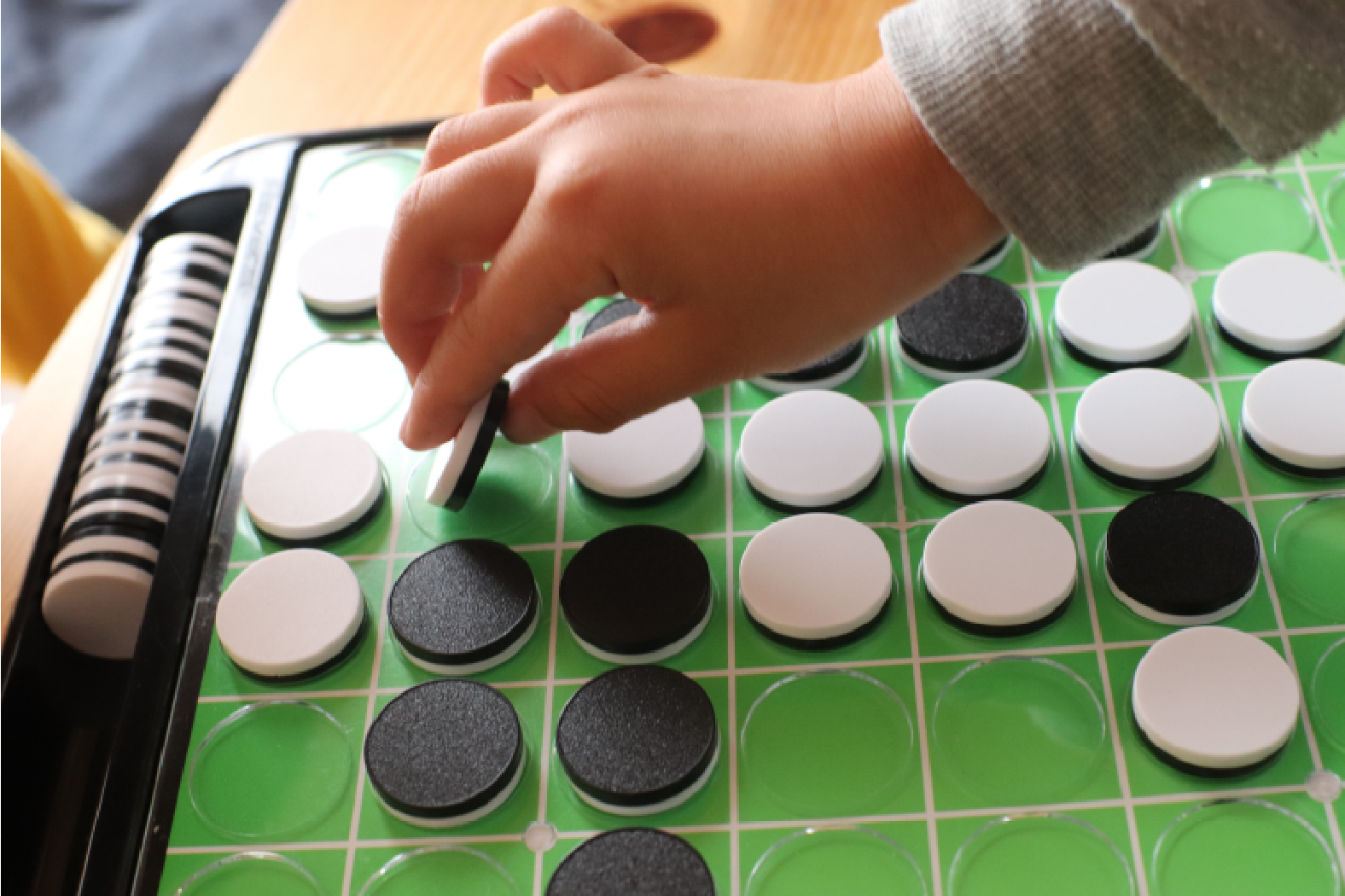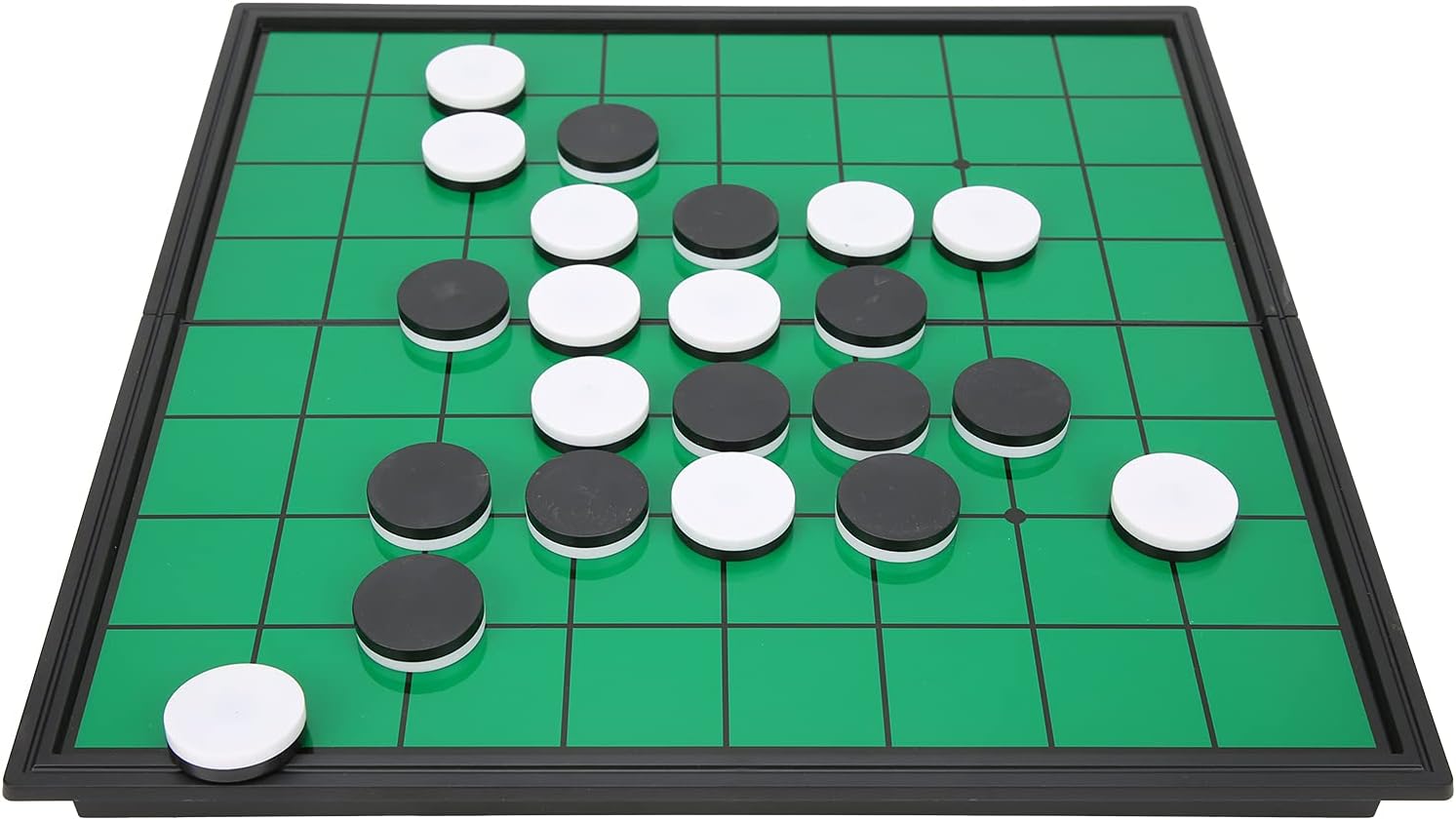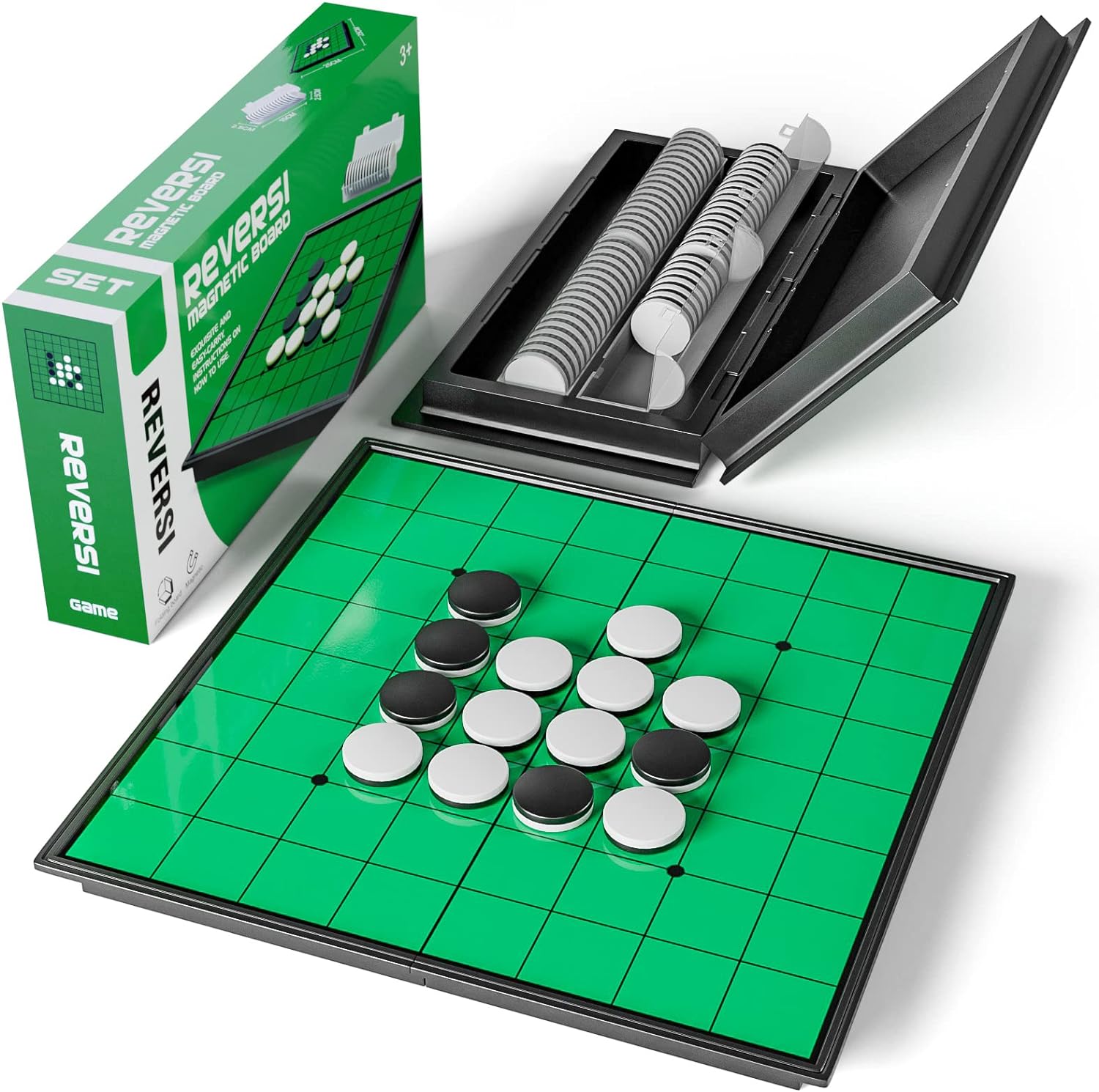Reversi
Reversi, also commonly known by the trademarked name Othello, is a strategic board game that involves two players and is played on an 8x8 square board. It is a game of positional strategy that involves a black side and a white side, with each player assigned one of these colors. The goal of the game is to finish with the most pieces showing your color when the board is filled or when neither player can make a legal move.

Origin and Evolution of Reversi
Reversi was originally invented in England by either Lewis Waterman or John W. Mollett in the late 19th century, with both claiming its creation. The game gained quick popularity in England and later spread globally. It evolved into the modern version known as Othello, which was patented in Japan in the 1970s by Goro Hasegawa. The modern game differs slightly in its setup and strategy but maintains the core principles of the original game.
Gameplay and Rules
The game begins with four discs placed in the center of the board in a square pattern—two white discs placed diagonally and two black discs filling the other two corners. Players alternate turns, placing a disc of their color on the board. A valid move must capture at least one of the opponent's discs. This capture occurs when a line (vertical, horizontal, or diagonal) of one or more of the opponent's discs is bracketed by the discs of the player making the move.
When a player places a disc on the board, any of the opponent’s discs that are between the disc just placed and another disc of the player's color are turned over to match the player's color. If a player cannot make a valid move, they pass their turn and the opponent continues. The game continues until neither player can make a move. This usually occurs when all 64 squares are filled but can happen sooner if no valid moves are available.
Strategy
The strategy in Reversi is deep and complex despite the simplicity of the rules. Early gameplay typically focuses on mobility, or maintaining the most options for placing new discs. Players often avoid specific moves that would give their opponent strategic advantage, such as placing discs in positions that would allow the opponent to capture corners.
Corners are pivotal because they cannot be flipped once captured, making them permanently one color. Capturing corners can lead to controlling the edges of the board, which is often a winning strategy because edge pieces, like corners, are less vulnerable to flipping.
A common strategic error in novice play is to capture too many discs too early. While this might seem advantageous, it often leads to a lack of flexibility in later stages of the game, allowing the opponent to dictate the pace and strategy of the remaining moves.
Endgame
As the board begins to fill up, the endgame starts. Here, the focus often shifts from positional play to maximizing the count of discs. The endgame is marked by fewer options and a clearer assessment of the outcome. Successful endgame strategies hinge on careful calculation and prediction of moves and countermoves, much like chess.
Players must also be adept at "parity" strategy, aiming to control the last move on as many different regions of the board as possible. Having the final move in an area often means winning that region, since the final placement usually flips multiple discs permanently.
Reversi is a game of subtlety and complexity, cloaked in simple rules. It requires foresight, strategy, and adaptability. Players must balance offensive and defensive positioning, capitalize on their opponent’s errors, and strategically time their moves. It teaches critical strategic thinking and planning, and like many classic games, it is easy to learn but difficult to master.
This game, though over a century old, continues to be a favorite for strategy game enthusiasts around the world. Its simplicity in design and depth in strategy make it enduringly popular and a fertile ground for competitive play and cognitive development. Whether played casually with friends or competitively in tournaments, Reversi remains a testament to the enduring appeal of strategic board games.
Reversi Travel Edition
Travel Reversi is an excellent choice for those who enjoy strategic games but need a practical solution for entertainment while traveling. It's light and easy to carry, offers the same intellectual challenge as the original, and provides a fun way to engage with travel companions or even pass time alone. Whether you're on a long flight, waiting in an airport, or relaxing at a cafe, the travel version of Reversi makes it easy to bring the fun along without any hassle.
As an Amazon Associate, this site earns commission from qualifying purchases.

